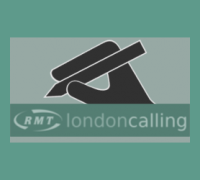This is the speech I gave to TUC Disabled Workers' Conference on 28 May.
Many of you will have your own experiences of both the freedom provided by public transport and the difficulty using it – be that the railway, buses, shipping, air travel, trams, riverboats, taxis, or other modes of transport.
Let’s look at some statistics and facts – mainly about the railways.
In a 2013 survey of disabled people, nearly 80% used the railways, half of them at least monthly, often weekly or more.
But the railway and other public transport is often inaccessible to disabled people in various ways.
Many services are physically inaccessible.
Many lack sufficient staff support.
It is often unaffordable, with what discounts are available not available everywhere and not available to all disabled people.
There is a level of harassment and abuse against disabled passengers which ought to be shocking but probably isn’t. 43% of wheelchair users have suffered a hate crime and/or abuse on a train or station.
And what are the consequences of the inaccessibility of public transport to disabled people?
- it is harder to get a job and to get to work
- it traps disabled people in poverty
- it obstructs access to medical care, rehabilitation, other services
- it impedes access to leisure (because yes, we do have lives as well as disabilities)
- it increases social isolation
The bottom line is that it’s not public transport if a section of the public can not use it.
This is a class issue. It is working-class people who rely on public transport, unable to afford private alternatives.
And it is the working class which has an interest in collective, public transport to maximise mobility and minimise environmental damage.
To help us understand the oppression and disadvantage we face, we use the social model of disability.
While impairments can present real challenges, what disables us is the barriers put up by the society we live in and its failure to accommodate our needs.
- It is not mobility impairment that means we can’t use that train – it is the lack of adequate space for wheelchairs and the steps from the street to the platform.
- It is not visual impairment that makes it hard to use that bus service – it is the fact that the timetable is only available in print.
- It is not epilepsy or autism that makes London Underground difficult – it is the over-stimulating environment, garish adverts, crowd congestion and unexpected disruptions.
- It is not depression or anxiety that make travel seem impossible – it is not knowing whether there will be a member of staff there to help when we need it.
It is not disabled people who must change – it is the transport system.
The transport operators tell us that NEW TECHNOLOGY is making access easier.
And yes, there have been some improvements that are very valuable to disabled passengers.
But too often, companies introduce technology as a pretext to dispense with staff – they give you a touchscreen with one hand and take away a station assistant with the other.
It suits some people (such as London Mayor Boris Johnson) to make out that RMT and other trade unions oppose new technology.
I want to nail this myth – Of course we don’t oppose new technology – if we did, we’d have opposed the invention of the railways!
We want technology that works with staff instead of replacing us.
- Station staff assist visually-impaired passengers through the station to the train, help people exit during evacuations and call medical help when needed.
- Staffed ticket offices allow disabled people who may not be able to use the ticket machines to get the service they need.
- Guards on trains and conductors on buses can help ensure safe boarding and disembarking.
- In the survey I mentioned at the start, 71% of disabled people said that they always or sometimes require assistance from staff or find it helpful while travelling on the railways.
- 81% said that the loss of staff from stations would make rail travel difficult for them.
But now public transport faces cuts.
The 2013 Spending Review included savage cuts of
- 9% to the Department for Transport’s budget
- 12.5% to Transport for London’s budget
You can not impose cuts like that without harming the service.
The Tory-led Coalition government tells us that we can not afford public spending, that we have to shoulder cuts.
I’m sorry, but I don’t remember disabled and other passengers causing the recession, so why are they being made to pay for it?!
If we “can’t afford” proper funding for accessible public transport, then how come we can afford:
- the £1bn lost each year due to fragmentation and privatisation of the railway?
- the £5bn public subsidy to the private railway – more than double the amount given to the old British Rail?
- the £300m annual surplus that private rail operators make?
There is an alternative way of tackling recession - spend public money on public works.
Instead of paying people to be unemployed, pay them to do the jobs that need doing - including include a major programme to make public transport fully accessible.
- install lifts, provide alternatives to steps, install communication in every format needed, ensure space for wheelchairs, properly integrate modes of transport.
As an added bonus, it would save money on your dreaded welfare bill too!
Only an irrational system like capitalism would not do this.
But instead, the government and the rail industry plan to find savings of £3.5bn.
Their ideas for how to do this come from the McNulty report, commissioned by the last Labour government and accepted by the current government.
These plans include:
- closing half the staffed ticket offices across the entire rail network
- scrapping all remaining guards on trains
And getting rid of:
- 5,000+ station and platform staff
- 2,000+ ticket office staff
- up to 7,000 guards and other on-train staff
- 6,000+ signalling and maintenance workers
Public transport is largely privately-owned and –operated.
That means that it is run for profit – making money for shareholders comes before making it accessible for disabled people.
The Tories privatised British Rail in 1993 – a disastrous, hugely unpopular policy.
Labour privatised the infrastructure of London Underground following its 1997 General Election win, with a woeful ‘Public-Private Partnership’ policy which had collapsed by 2010.
The private companies which took over the Tube’s infrastructure insisted on a clause in the contracts allowing them to challenge any request from London Underground to improve disabled access that was above the bare legal minimum.
Requirements to create step-free access to stations were removed from the contracts.
And the private companies reneged on their promises to refurbish or replace lifts.
Privatisation has been a disaster.
We want public transport run for need not profit – That means that we need it back in public ownership: we can not control what we do not own.
If the public owns public transport, then we can insist that it is made accessible.
We can never expect the Tories to do this. But there is a General Election next year.
Labour must pledge to renationalise the railways, as a step to bringing all public transport into public ownership.
- It’s a socialist policy
- It’s a popular policy
- It’s the right policy.
Last year’s Labour Party conference voted unanimously for a resolution proposed by rail unions ASLEF and TSSA supporting rail renationalisation.
Over the next month, RMT’s AGM and Unite’s policy conference will discuss resolutions calling on Labour to include rail renationalisation it its General Election manifesto.
30 Labour Parliamentary candidates signed a letter supporting rail renationalisation.
I think I can feel a movement growing, and I think I know what we should call it – Get Rail Renationalisation in Labour’s Election Manifesto – GRRiLEM! (It wasn’t me who came up with that – it was my mate Tony, a train driver.)
We need public ownership. But we need more than public ownership.
We don’t need an underfunded, bureaucratic, inaccessible public transport system like we had in our nationalised industries in the past.
Instead, we need a well-funded public transport system under the democratic control of the people who work on it, the people who use it, & the people who would use it if they could.
We need a workers’ and passengers’ plan, drawn up and overseen by elected, recallable representatives of workers, of passengers, of all sections of the community, including disabled people.
In London Underground, the unions are fighting the company’s plan to close every ticket office and get rid of nearly 1,000 station staff, with devastating impact on our ability to assist disabled passengers.
It is a campaign which RMT calls Every Job Matters, and we have taken four days strike action so far.
Our union is also fighting cuts to jobs and services in other companies, and is ready to do so whenever we need to.
RMT is working closely with other unions and the TUC via Action For Rail campaign.
And with organisations such as Transport for All and DPAC.
Around the country, DPAC and other disability activists have joined transport trade unionists in protesting and leafleting against rail cuts.
On the day that London Underground announced its plans, dozens of T4A activists held a spontaneous protest outside Westminster station.
TUC Disabled Workers’ Committee protested at TCR station in support of the RMT/TSSA strike in February.
And DPAC held a further protest a couple of weeks ago.
In London, we have a campaign called HOLT: Hands Off London Transport.
We have a stall at this conference today and tomorrow – please come and visit and pick up some of our campaigning materials.
Public transport is an essential public service which benefits the whole working class. So the whole of our class must unite to defend it.
When we were on strike, people rung up phone-ins and came up to us on picket lines telling us that they support our struggle.
Many told us that they had a disability and that this was the reason why they opposed the closure of ticket offices and removal of staff and supported our fight to save them.
We’re not on strike at the moment (we thought we’d let you have a smooth journey to conference!), as our hard-hitting industrial action forced the company to pause its attacks, amend its proposals and take part in further talks.
But have no doubt – If LUL persists in its plan to close all our ticket offices and remove staff from our stations, we WILL strike again, and we will welcome your support.
As our late and much-missed General Secretary, Bob Crow, was fond of saying – If you fight, you might not win; but if you don’t fight, you will certainly lose.
Transport workers and passengers must unite and fight to demand decent, well-staffed, accessible, publicly-owned public transport.
- Janine's blog
- 3977 reads






